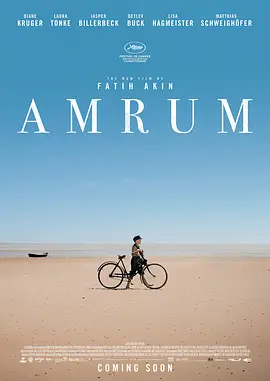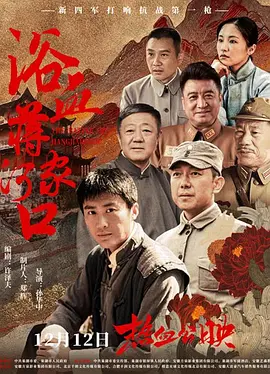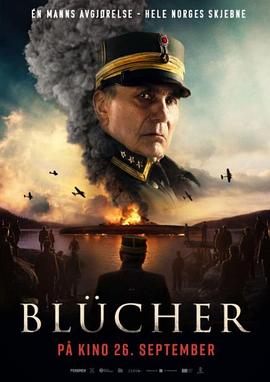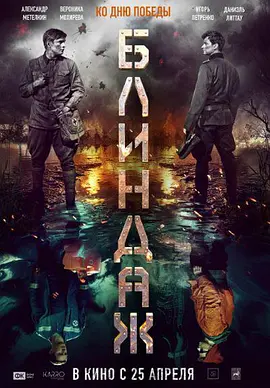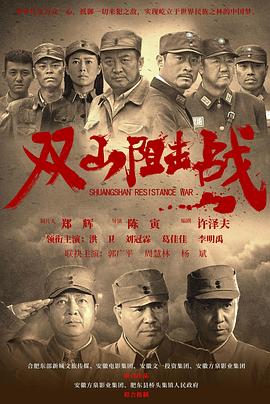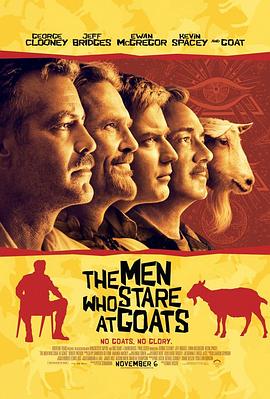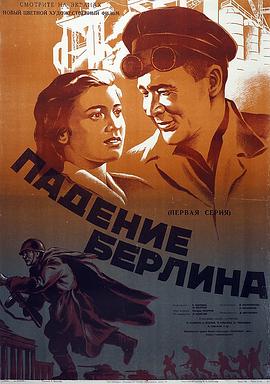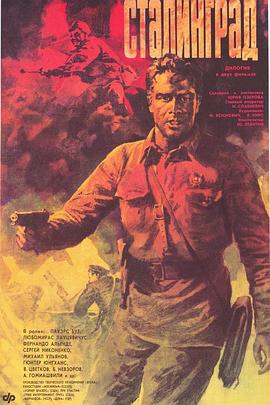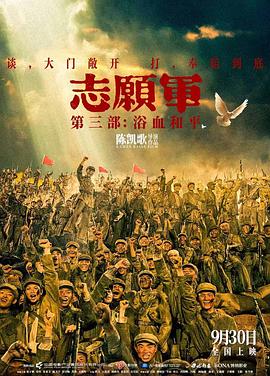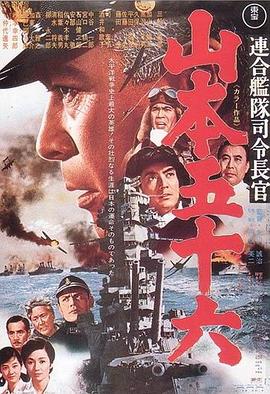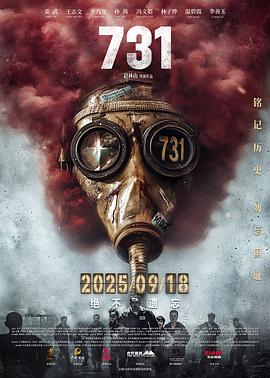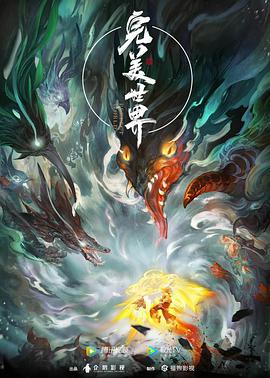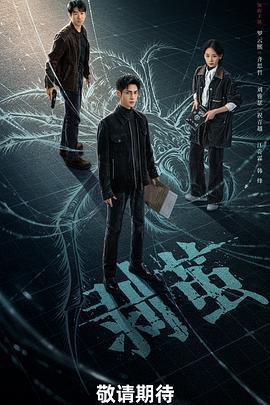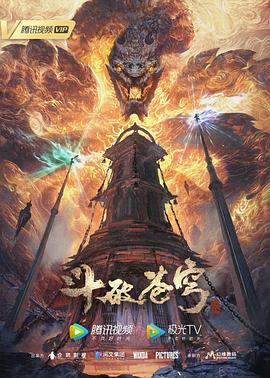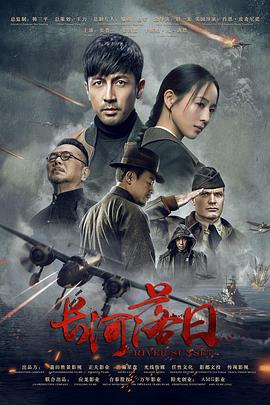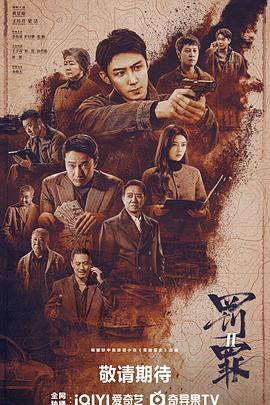
导演:
上映:
未知
备注:
TAG:
未知
剧情:
In 1961, Stanislaw Rozewicz created the novella film "Birth Certificate" in cooperation with his brother, Taduesz Rozewicz as screenwriter. Such brother tandems are rare in the history of film but aside from family ties, Stanislaw (born in 1924) and Taduesz (born in 1921) were mutually bound by their love for the cinema. They were born and grew up in Radomsk, a small town which had "its madmen and its saints" and most importanly, the "Kinema" cinema, as Stanislaw recalls: for him cinema is "heaven, the whole world, enchantment". Tadeusz says he considers cinema both a charming market stall and a mysterious temple. "All this savage land has always attracted and fascinated me," he says. "I am devoured by cinema and I devour cinema; I'm a cinema eater." But Taduesz Rozewicz, an eminent writer, admits this unique form of cooperation was a problem to him: "It is the presence of the other person not only in the process of writing, but at its very core, which is inserperable for me from absolute solitude." Some scenes the brothers wrote together; others were created by the writer himself, following discussions with the director. But from the perspective of time, it is "Birth Certificate", rather than "Echo" or "The Wicked Gate", that Taduesz describes as his most intimate film. This is understandable. The tradgey from September 1939 in Poland was for the Rozewicz brothers their personal "birth certificate". When working on the film, the director said "This time it is all about shaking off, getting rid of the psychological burden which the war was for all of us. ... Cooperation with my brother was in this case easier, as we share many war memories. We wanted to show to adult viewers a picture of war as seen by a child. ... In reality, it is the adults who created the real world of massacres. Children beheld the horrors coming back to life, exhumed from underneath the ground, overwhelming the earth." The principle of composition of "Birth Certificate" is not obvious. When watching a novella film, we tend to think in terms of traditional theatre. We expect that a miniature story will finish with a sharp point; the three film novellas in Rozewicz's work lack this feature. We do not know what will be happen to the boy making his alone through the forest towards the end of "On the Road". We do not know whether in "Letter from the Camp", the help offered by the small heroes to a Soviet prisoner will rescue him from the unknown fate of his compatriots. The fate of the Jewish girl from "Drop of Blood" is also unclear. Will she keep her new impersonation as "Marysia Malinowska"? Or will the Nazis make her into a representative of the "Nordic race"? Those questions were asked by the director for a reason. He preceived war as chaos and perdition, and not as linear history that could be reflected in a plot. Although "Birth Certificate" is saturated with moral content, it does not aim to be a morality play. But with the immense pressure of reality, no varient of fate should be excluded. This approached can be compared wth Krzysztof Kieslowski's "Blind Chance" 25 years later, which pictured dramatic choices of a different era. The film novella "On the Road" has a very sparing plot, but it drew special attention of the reviewers. The ominating overtone of the war films created by the Polish Film School at that time should be kept in mind. Mainly owing to Wajda, those films dealt with romantic heritage. They were permeated with pathos, bitterness, and irony. Rozewicz is an extraordinary artist. When narrating a story about a boy lost in a war zone, carrying some documents from the regiment office as if they were a treasure, the narrator in "On the Road" discovers rough prose where one should find poetry. And suddenly, the irrational touches this rather tame world. The boy, who until that moment resembled a Polish version of the Good Soldier Schweik, sets off, like Don Quixote, for his first and last battle. A critic described it as "an absurd gesture and someone else could surely use it to criticise the Polish style of dying. ... But the Rozewicz brothers do no accuse: they only compose an elegy for the picturesque peasant-soldier, probably the most important veteran of the Polish war of 1939-1945." "Birth Certificate" is not a lofty statement about national imponderabilia. The film reveals a plebeian perspective which Aleksander Jackieqicz once contrasted with those "lyrical lamentations" inherent in the Kordian tradition. However, a historical overview of Rozewicz's work shows that the distinctive style does not signify a fundamental difference in illustrating the Polish September. Just as the memorable scene from Wajda's "Lotna" was in fact an expression of desperation and distress, the same emotions permeate the final scene of "Birth Certificate". These are not ideological concepts, though once described as such and fervently debated, but rather psychological creations. In this specific case, observes Witold Zalewski, it is not about manifesting knightly pride, but about a gesture of a simple man who does not agree to be enslaved. The novella "Drop of Blood" is, with Aleksander Ford's "Border Street", one of the first narrations of the fate of the Polish Jews during the Nazi occupation. The story about a girl literally looking for her place on earth has a dramatic dimension. Especially in the age of today's journalistic disputes, often manipulative, lacking in empathy and imbued with bad will, Rozewicz's story from the past shocks with its authenticity. The small herione of the story is the only one who survives a German raid on her family home. Physical survial does not, however, mean a return to normality. Her frightened departure from the rubbish dump that was her hideout lead her to a ruined apartment. Her walk around it is painful because still fresh signs of life are mixed with evidence of annihilation. Help is needed, but Mirka does not know anyone in the outside world. Her subsequent attempts express the state of the fugitive's spirits - from hope and faith, moving to doubt, a sense of oppression, and thickening fear, and finally to despair. At the same time, the Jewish girl's search for refuge resembles the state of Polish society. The appearance of Mirka results in confusion, and later, trouble. This was already signalled by Rozewicz in an exceptional scene from "Letter from the Camp" in which the boy's neighbour, seeing a fugitive Russian soldier, retreats immediately, admitting that "Now, people worry only about themselves." Such embarassing excuses mask fear. During the occupation, no one feels safe. Neither social status not the aegis of a charity organisation protects against repression. We see the potential guardians of Mirka passing her back and forth among themselves. These are friendly hands but they cannot offer strong support. The story takes place on that thin line between solidarity and heroism. Solidarity arises spontaneously, but only some are capable of heroism. Help for the girl does not always result from compassion; sometimes it is based on past relations and personal ties (a neighbour of the doctor takes in the fugitive for a few days because of past friendship). Rozewicz portrays all of this in a subtle way; even the smallest gesture has significance. Take, for example, the conversation with a stranger on the train: short, as if jotted down on the margin, but so full of tension. And earlier, a peculiar examination of Polishness: the "Holy Father" prayer forced on Mirka by the village boys to check that she is not a Jew. Would not rising to the challenge mean a death sentance? Viewed after many years, "Birth Certificate" discloses yet another quality that is not present in the works of the Polish School, but is prominent in later B-class war films. This is the picture of everyday life during the war and occupation outlined in the three novellas. It harmonises with the logic of speaking about "life after life". Small heroes of Rozewicz suddenly enter the reality of war, with no experience or scale with which to compare it. For them, the present is a natural extension of and at the same time a complete negation of the past. Consider the sleey small-town marketplace, through which armoured columns will shortly pass. Or meet the German motorcyclists, who look like aliens from outer space - a picture taken from an autopsy because this is how Stanislaw and Taduesz perceived the first Germans they ever met. Note the blurred silhouettes of people against a white wall who are being shot - at first they are shocking, but soon they will probably become a part of the grim landscape. In the city centre stands a prisoner camp on a sodden bog ("People perish likes flies; the bodies are transported during the night"); in the street the childern are running after a coal wagon to collect some precious pieces of fuel. There's a bustle around some food (a boy reproaches his younger brother's actions by singing: "The warrant officer's son is begging in front of the church? I'm going to tell mother!"); and the kitchen, which one evening becomes the proscenium of a real drama. And there are the symbols: a bar of chocolate forced upon a boy by a Wehrmacht soldier ("On the Road"); a pair of shoes belonging to Zbyszek's father which the boy spontaneously gives to a Russian fugitive; a priceless slice of bread, ground under the heel of a policeman in the guter ("Letters from the Camp"). As the director put it: "In every film, I communicate my own vision of the world and of the people. Only then the style follows, the defined way of experiencing things." In Birth Certificate, he adds, his approach was driven by the subject: "I attempted to create not only the texture of the document but also to add some poetic element. I know it is risky but as for the merger of documentation and poety, often hidden very deep, if only it manages to make its way onto the screen, it results in what can referred to as 'art'." After 1945, there were numerous films created in Europe that dealt with war and children, including "Somewhere in Europe" ("Valahol Europaban", 1947 by Geza Radvanyi), "Shoeshine" ("Sciescia", 1946 by Vittorio de Sica), and "Childhood of Ivan" ("Iwanowo dietstwo" by Andriej Tarkowski). Yet there were fewer than one would expect. Pursuing a subject so imbued with sentimentalism requires stylistic disipline and a special ability to manage child actors. The author of "Birth Certificate" mastered both - and it was not by chance. Stanislaw Rozewicz was always the beneficent spirit of the film milieu; he could unite people around a common goal. He emanated peace and sensitivity, which flowed to his co-workers and pupils. A film, being a group work, necessitates some form of empathy - tuning in with others. In a biographical documentary about Stanislaw Rozewicz entitled "Walking, Meeting" (1999 by Antoni Krauze), there is a beautiful scene when the director, after a few decades, meets Beata Barszczewska, who plays Mireczka in the novella "Drops of Blood". The woman falls into the arms of the elderly man. They are both moved. He wonders how many years have passed. She answers: "A few years. Not too many." And Rozewicz, with his characteristic smile says: "It is true. We spent this entire time together." 收起
相关影片
2025
战争片
德国
Jasper Billerbeck 劳拉·汤克 丽莎·哈格迈斯特 Kian Köppke 拉尔斯·耶森 德特勒夫·布克 马提亚斯·施维赫夫 黛安·克鲁格 德克·伯林 哈克·波姆 Tony Can Rita Feldmeier 马克·哈洛夫 Morten Bo Heine 马克斯·霍普 Polli Leuner Jorid Lukaczik Bernd Moss Florentine Panizza Thomas Perkins
这部历史剧以1945年春季二战尾声为背景,聚焦十岁少年南宁。其父远征战场,少年竭尽所能助母养家:猎捕海豹、暗夜捕鱼、躬耕田间。然而期盼已久的和平降临后,却催生全新冲突,南宁必须在废墟之上探寻属于自己的
HD
2025
战争片
中国大陆
HD
2025
战争片
挪威
1940年4月9日,64岁的比尔格·埃里克森上校指挥着奥斯卡斯堡要塞,这是所有前往奥斯陆的船只必须经过的关键关卡。
HD中字
2024
战争片
俄罗斯
维罗尼卡·莫希雷娃 伊戈尔·别特连科 Fyodor Lavrov Mikhail Novikov 阿列克谢·舍甫琴科夫 亚历山大·梅乔金 Maksim Saprykin 玛格丽塔·阿布罗斯金 Nikita Abdulov 迪安·迈耶 Oleg Novikov Artem Zlobin Kirill Taskin Andrey Marusin Maksim Plekhanov Maksim Gorshkov Mikhail Sevastyanov Daniel Littau Linda Akhmetzyan
一对朋友,一个德国人和一个俄国人,穿越时空最终来到了1941年。两位朋友被迫做出决定,并要应对他们无法想象的困难。他们的友谊能否度过难关,保罗和谢尔盖又会站在哪一边?
HD
HD
2009
战争片
美国
乔治·克鲁尼 伊万·麦克格雷格 杰夫·布里吉斯 凯文·史派西 史蒂芬·朗 罗伯特·帕特里克 瓦利德·祖伊特 斯蒂芬·鲁特 格伦·莫肖尔 尼克·奥弗曼 蒂姆·格里芬 丽贝卡·麦德 雅各布·布朗 布拉德·格伦伯格 Matt Newton 罗伯特·库蒂斯·布朗 赫拉奇·蒂蒂赞 Shafik N. Bahou 德鲁·塞尔策 Michael-David Aragon 泰瑞·塞尔皮科 Diego Serrano Reginald Huc 阿荣·希弗 斯蒂夫·维亭 Jay Spadaro 切克·伯恩哈特 乔治·W· 布
鲍勃•维尔登(伊万•麦克格雷格Ewan McGregor 饰)是个婚姻失败的美国记者,绝望中来到中东,试图设法潜入伊拉克进行战地新闻报道以赢回前妻芳心。鲍勃在科威特遇到了以前采访中听说过的私家建筑商林
HD
1950
战争片
苏联
米哈依尔·齐阿乌列里(Mikheil Chiaureli)是斯大林的御用导演,由他执导的这部战争史诗《攻克柏林》长达近三个小时,分上下两部,处处着重突出最高统帅的高瞻远瞩。影片结尾,斯大林乘飞机抵
HD中字|国语
1990
战争片
苏联
鲍沃斯·布斯 柳博米拉斯·劳恰维丘斯 谢尔盖·尼科年科 费尔南多·阿连德 米哈伊尔·乌里扬诺夫 格特·容加斯 鲍里斯·涅夫佐罗夫 布鲁诺·弗雷因德利赫 亚历山大·戈洛博罗德科 Yevgeni Burenkov 费奥多尔·邦达尔丘克 卡尔·海因茨·乔恩斯基 欧克萨娜·范德拉 谢尔盖·加尔马什 瓦伦丁·格鲁本科 Andrei Grinevich 安德烈·古塞夫 Gerd Michael Henneberg 阿尔乔姆·卡拉佩强 季格兰·格奥萨扬 尼古拉·克留奇科夫 罗纳德·莱西 Horst Schulze La
本片反映勒第二次世界大战的历史转折点斯大林格勒战役,是一部极具历料及欣赏价值的巨作.是导演尤.奥泽洛夫的卫国战争三部曲的最后一部.1942年夏季,德军大举进攻苏联,苏军撒退到斯大林格勒进行顽强地抵
HD国语
2025
战争片
大陆
HD国语
1978
战争片
苏联
尤里·索洛明 叶甫盖尼·列别杰夫 伊琳娜·阿库洛娃 弗拉季斯拉夫·斯特尔热利奇克 亚历山大·拉辛 鲍里斯·戈尔巴托夫 谢尔盖·哈钦科 Roman Gromadsky Aleksei Presnetsov 米哈伊尔·乌里扬诺夫 丹尼尔·萨加尔 Stanislav Fesyunov Vladimir Voronov 列夫·佐洛图欣 Igor Komarov Gerbert Dmitriev German Khovanov Oleg Khromenkov Rudolf Chelishchev Vladimir
本片是苏联伟大卫国战争系列史诗巨片之一部。影片尽情歌颂了苏联人民,在德国法西斯围困列宁格勒的900个艰难的日日夜夜,所表现出来的顽强精神。影片及表现了苏军大本营对列宁格勒的战略布防,也表现出列宁格
HD中字
1978
战争片
苏联
尤里·索洛明 叶甫盖尼·列别杰夫 伊琳娜·阿库洛娃 弗拉季斯拉夫·斯特尔热利奇克 亚历山大·拉辛 鲍里斯·戈尔巴托夫 谢尔盖·哈钦科 Roman Gromadsky Aleksei Presnetsov 米哈伊尔·乌里扬诺夫 丹尼尔·萨加尔 Stanislav Fesyunov Vladimir Voronov 列夫·佐洛图欣 Igor Komarov Gerbert Dmitriev German Khovanov Oleg Khromenkov Rudolf Chelishchev Vladimir
本片是苏联伟大卫国战争系列史诗巨片之一部。影片尽情歌颂了苏联人民,在德国法西斯围困列宁格勒的900个艰难的日日夜夜,所表现出来的顽强精神。影片及表现了苏军大本营对列宁格勒的战略布防,也表现出列宁格
HD中字
1978
战争片
苏联
尤里·索洛明 叶甫盖尼·列别杰夫 伊琳娜·阿库洛娃 弗拉季斯拉夫·斯特尔热利奇克 亚历山大·拉辛 鲍里斯·戈尔巴托夫 谢尔盖·哈钦科 Roman Gromadsky Aleksei Presnetsov 米哈伊尔·乌里扬诺夫 丹尼尔·萨加尔 Stanislav Fesyunov Vladimir Voronov 列夫·佐洛图欣 Igor Komarov Gerbert Dmitriev German Khovanov Oleg Khromenkov Rudolf Chelishchev Vladimir
本片是苏联伟大卫国战争系列史诗巨片之一部。影片尽情歌颂了苏联人民,在德国法西斯围困列宁格勒的900个艰难的日日夜夜,所表现出来的顽强精神。影片及表现了苏军大本营对列宁格勒的战略布防,也表现出列宁格
HD中字
1975
战争片
苏联
尤里·索洛明 叶甫盖尼·列别杰夫 伊琳娜·阿库洛娃 列夫·佐洛图欣 弗拉季斯拉夫·斯特尔热利奇克 亚历山大·拉辛 鲍里斯·戈尔巴托夫 谢尔盖·哈钦科 丹尼尔·萨加尔 Vasiliy Minin Valentin Abramov Anatoliy Verbitskiy 米哈伊尔·乌里扬诺夫 Roman Gromadsky Konstantin Malakhov Stanislav Fesyunov Yuri Maltsev Aleksandr Afanasev Vladimiras Lido Yuri Ku
该片讲述了伟大卫国战争期间列宁格勒遭受德寇围困的九百天,列宁格勒军民克服种种令人难以置信的困难--饥饿,轰炸,疾病,寒冷——保卫了这座“英雄城”并最终打破了德寇的围困的故事。
HD中字
1968
战争片
日本
HD国语
2025
战争片
大陆
HD
正在热播
更多
2021
国产动漫
大陆
更新至第255集
2025
国产剧
大陆
已完结
2020
国产动漫
大陆
更新至第630集
更新至第185集
2025
国产剧
大陆
已完结
2025
国产剧
大陆
已完结
2025
国产剧
大陆
已完结
2025
国产剧
大陆
已完结
2025
国产剧
大陆
已完结
2025
国产剧
大陆
已完结
2025
国产剧
大陆
已完结
2026
国产剧
大陆
已完结
2025
国产剧
大陆
已完结
2026
动作片
大陆
HD

